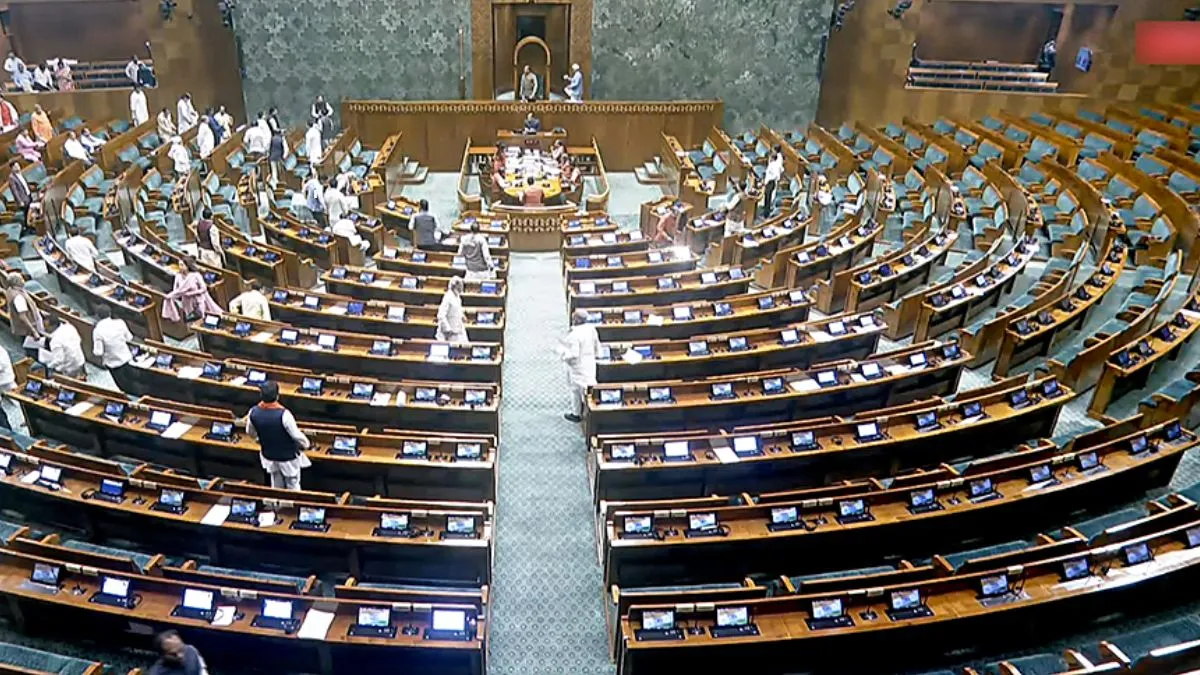- By Imran Zafar
- Tue, 25 Mar 2025 08:17 PM (IST)
- Source:JND
The Lok Sabha passed the Finance Bill 2025 on Tuesday, incorporating 35 amendments, including the abolition of the 6 per cent digital tax, commonly known as the ‘Google Tax,’ on online advertisements. Finance Minister Nirmala Sitharaman stated that the legislation aligns with the aspirations of the people and the broader goal of making India a developed nation by 2047.
The bill was approved after the House adopted amendments moved by the finance minister. The debate on the legislation commenced on Monday and concluded with FM Nirmala Sitharaman addressing concerns raised by members.
FM Sitharaman highlighted that the Finance Bill 2025 aims to provide tax certainty and ease of doing business. “It rationalizes numerous provisions, ensuring unprecedented tax relief to taxpayers,” she stated.
Among the key amendments is the removal of the 6 per cent equalisation levy on online advertisements, intended to address uncertainties in the global economic environment. The bill will now be tabled in the Rajya Sabha for further consideration.
ALSO READ: Indian MPs To Receive 24% Pay Hike From April 1, Here's What Their Global Counterparts Earn
Opposition Criticism And BJP's Defence
The bill saw sharp exchanges in the House, with opposition parties accusing the government of applying “patchwork solutions” and implementing a flawed Goods and Services Tax (GST) system. Congress MP Shashi Tharoor argued that the government's economic policies face deep structural challenges.
“This Finance Bill is a classic case of patchwork solutions at a time when the nation needs clarity and decisive leadership. Growth targets have been scaled down, and the ambition of maintaining a respectable economic trajectory is diminishing,” Tharoor remarked. He also criticised the heavy burden on individual taxpayers, stating that they contribute more than corporations, with indirect taxes like GST disproportionately impacting the common citizen.
BJP MP Nishikant Dubey countered the opposition's criticism, asserting that the Union Budget benefits the common man. “Under Prime Minister Narendra Modi’s leadership, the country’s GDP has more than doubled in the last decade,” Dubey said. He further argued that the NDA government has implemented tax reductions on imported generic medicines and lowered import duties on machinery used in fish farming and handloom industries.
ALSO READ: New Income Tax Bill Under Review, To Be Taken Up For Discussion In Monsoon Session: FM Sitharaman
Concerns Over Taxation Policy And Economic Divide
Trinamool Congress MP Mahua Moitra accused the government of widening economic disparities through its taxation policies. Citing Finance Ministry data, she pointed out that only 56 lakh individuals earn over Rs 15 lakh annually and are the primary contributors to direct taxes.
''Out of India’s 140 crore population, only a fraction is bearing the tax burden. Meanwhile, the rest are subjected to GST, which disproportionately affects the poor,'' Moitra said. She criticised the government for failing to alleviate the burden of indirect taxes and called for a more equitable taxation structure.
(With ANI Inputs)


